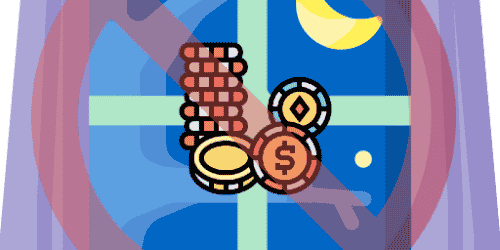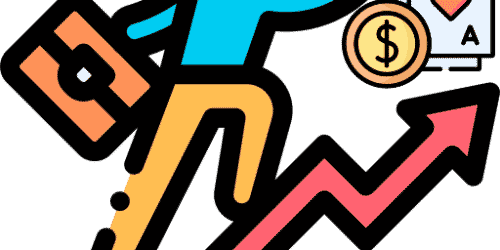How the Brain Gets Addicted to Gambling

Every now and then every one of us makes a wager. Some buy a scratch card, others buy lottery tickets and most people will have made wagers on the Rugby Six Nations or on the World Cup Football. In itself there is nothing wrong with these forms of gambling, a little extra thrills during a massive game can’t really hurt. In recent years gambling has been taken from traditional venues like bet offices to pretty much anywhere as betting has rapidly become available online.
With scratch cards, lotteries, casinos, pokies, online pokies, and table games in live dealer casinos the options for making a wager seem greater than ever. For most people, gambling is meant to give them a bit of extra excitement, while others would call it some relaxation or a fun night out. But for a small group gambling is seen as a threat, some even relate it to severe addiction. This is why we’ll cover a somewhat more serious topic today as the dangers of gambling need to be addressed as well. We’ll especially tackle what exactly gambling does to the brain in such a way that some people get addicted to it.
Table of Contents
What happens in your head when you gamble?
Scientists tend to classify gambling addictions in the same way as drug and alcohol abuse. Whether you consume cocaine, whiskey or play on pokies, your brain will feel the same hunger and craves the reward of the substance. The substance and craving for it are felt by everyone but to a certain extent. Recreational gamblers experience the same euphoria during the win, but the main difference with problem gambling is that the substances are released in their brain during the anticipation of the win, this can either be in the seconds or the minutes before the outcome of the wager is visible to its players. The chance, not certainty, of winning, is one of the main features why gambling is considered exciting by its players. For those that suffer from a gambling addiction, the pleasurable feelings of making a win are felt continuously while they build a certain tolerance over time as a result of this (over)stimulation. Players are willing to take greater risks to feel the same reward.
Two halves of the brain
Two parts of the brain play a key role in the above: the striatum ventral and the prefrontal cortex.
- Striatum ventral: the striatum ventral is also known as the reward centre. This area is often less active in addicts. That could very well be a major reason they are prone to addiction – they need more stimuli to boost their reward system.
- Prefrontal cortex: the second area is the prefrontal cortex. Decision-making, suppressing impulses, and controlling your behaviour are examples of processes that take place in this part of the brain. This area is also less active in the brains of gambling addicts, who are less able to suppress their impulses.
Effects of addiction on your brain
It is unclear whether gambling also changes your brain, but some scientists believe it does. The brain of someone who has been gambling for years does however look different from the brain of a non-gambler. In gaming or gambling addictions often the structure and size of the brain have changed into two parts of the brain: the part where your control or loss of control is located and the part where your reward centre is located. On brain scans, these parts often show much higher activity than average in-game and gambling addicts. That theoretically proves that addiction has consequences for your brain, although more research is needed to support these hypotheses. Interesting research that was conducted to analyse the functioning of these parts of the brain showed that the brains of certified taxi drivers in London changed over time as a result of their daily activities. In a time when Google Maps and other online tools didn’t exist, they were expected to know the road map by heart. This knowledge is stored in the part of the brain that is called the hippocampus. It has been proven that the hippocampus of taxi drivers is larger than that of an average person, meaning that the structure of the brain does chain.
Sporadic rewards are what leads to addictions
The way you get rewarded actually makes a big difference. With the continuous reward, saturation will occur over time, and if you reward very regularly, most people will only do their average best as they are assured of the reward. Irregular, sporadic, unpredictable rewards, however, are what trigger the brain and the need to continue playing. Users who experience sporadic wins will then continuously try to give their best, in the hope that they will make a next win that is ideally higher than the previous one. By making the odds and moment of a win unpredictable, people keep betting — some of them feeling the anticipation of rewarding substances that eventually lead to severe gambling addictions.
Gain back control of your brain
People behind an online pokie or land-based pokie are actually conditioned to gamble as long and as much as possible. Pokie providers are known to adopt a similar strategy and they’re not the only ones. Companies in all niches are doing everything they can to make you repeat the same behaviour. Facebook wants you to keep on scrolling, Instagram does as well, and if you open your Netflix account the first film or series already starts playing before you have even pressed play. Online providers have become masters in controlling their visitors’ brains, and it is your task to gain back control of what is your own brain.
Last note
KiwiGambler promotes online gaming and is a huge fan of everything that concerns offline and online casinos. We do, however, stand for responsible play, and only promote safe and trustworthy websites. If you feel uncomfortable with playing online we recommend you set limits as soon as you create an account or temporarily deactivate your account. All of our recommendations offer options to set limits for deposits, bets, and sessions. Only play with money you can miss and play with a predefined budget. Have fun, but play safe.







